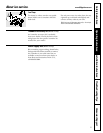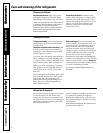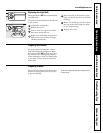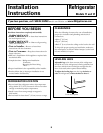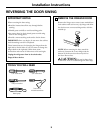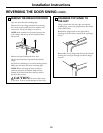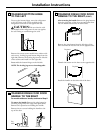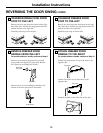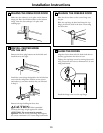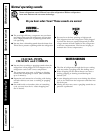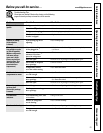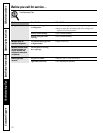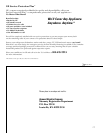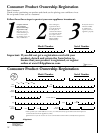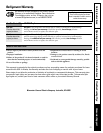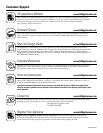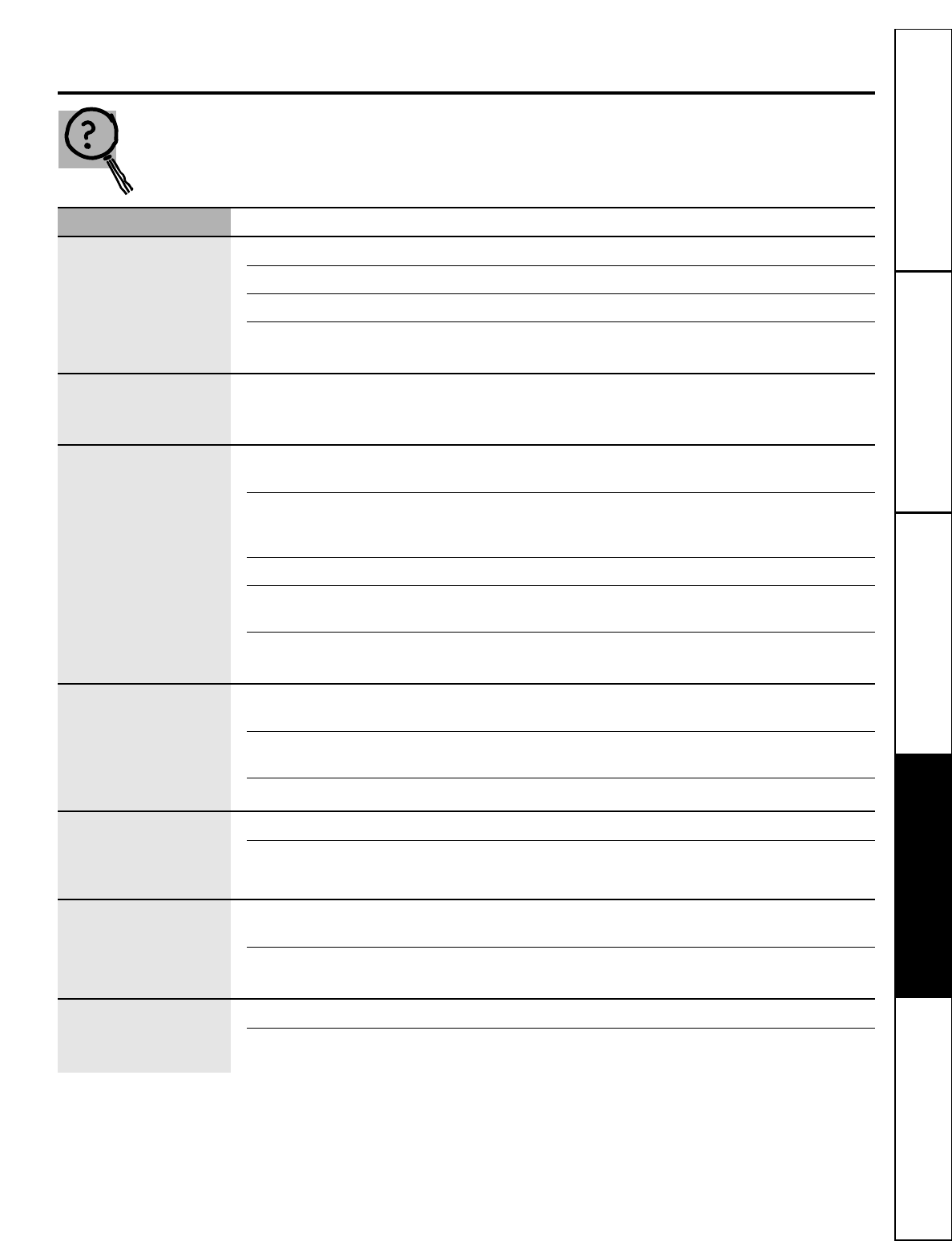
15
Consumer SupportTroubleshooting TipsOperating InstructionsSafety Instructions Installation Instructions
Problem Possible Causes What To Do
Refrigerator does not Refrigerator in defrost cycle. •Wait about 30 minutes for defrost cycle to end.
operate
Control in OFF position. •Move the control to a temperature setting.
Refrigerator is unplugged. •Push the plug completely into the outlet.
The fuse is blown/circuit •Replace fuse or reset the breaker.
breaker is tripped.
Vibration or rattling Front leveling legs need •See Leveling Legs.
(slight vibration adjusting.
is normal)
Motor operates for Normal when refrigerator •Wait 24 hours for the refrigerator to completely
is first plugged in. cool down.
Often occurs when large •This is normal.
amounts of food are
placed in refrigerator.
Door left open. •Check to see if package is holding door open.
Hot weather or frequent •This is normal.
door openings.
Temperature control •See About the control.
set at the coldest setting.
Fresh food or freezer Temperature control not •See About the control.
compartment too warm set cold enough.
Warm weather or frequent •Set the temperature control one step colder.
door openings. See About the control.
Door left open. •Check to see if package is holding door open.
Frost or ice crystals Door left open. •Check to see if package is holding door open.
on frozen food
Too frequent or too long
(frost within package
door openings.
is normal)
Ice cubes have Food transmitting odor/taste •Wrap foods well.
odor/taste to ice cubes.
Interior of refrigerator •See Care and cleaning.
needs cleaning.
Slow ice cube freezing Door left open. •Check to see if package is holding door open.
Temperature control not •See About the control.
set cold enough.
Before you call for service… www.GEAppliances.com
Troubleshooting Tips
Save time and money! Review the charts on the following
pages first and you may not need to call for service.
long periods or cycles
on and off frequently.
(Modern refrigerators
with more storage
space and a larger
freezer require more
operating time. They
start and stop often
to maintain even
temperatures.)



